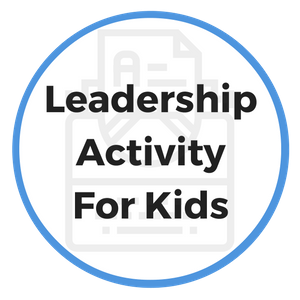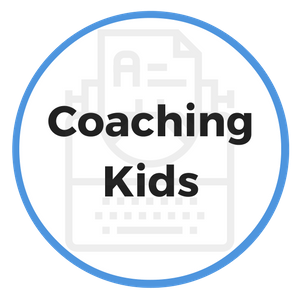- Home
- Leadership Development Articles
- Leadership Skills for Kids
Leadership Skills For Kids: Part 1 of 2
Leadership skills for kids is a subject that isn’t considered by parents or the public school system as seriously as it should be.
It’s never too early, or too late, to begin teaching kids the basics in leadership development.
Most parents remember, believe in, and therefore strive to teach their children...
THE GOLDEN RULE
“Do unto others as you would have others do unto you.”
Not surprisingly, this golden rule is also one of the most important leadership skills for kids to fully understand. Kids need to appreciate and respect others who may see things differently than they do.
It's important to make your child aware of the fact that not everything is simply black and white. There are many shades of grey and different points of view that should always be considered and respected.
Kids must realize that each situation they face should not necessarily be summed up as right or wrong. Kids need to learn to appreciate some circumstances as just 'different' from what they may be used to - and because it's different, they should strive to understand and potentially learn from others.
Think kids are too young to learn about leadership? Think again... watch this video, you'll be impressed.
Top Leadership Skills for Kids
If you are already teaching the Golden Rule to your kids, you’re already off to a great start. Now you can begin to take the discussion to the next level.
Let’s take a look at six additional top leadership skills for kids:
1. Communication
Encouraging children to effectively communicate with others is a critical part of their leadership development. Make the key point that everyone is given two ears and only one mouth for a reason - so they might listen twice as much as they speak!
Listening effectively is key to good communication.
2. Collaboration/Teamwork
Working well with others is another highly important skill for kids. Becoming more accomplished as a team in less time, rather than simply going it alone, almost always produces a better outcome.
The social aspects of teamwork are important to a child's development. Children who are shielded or overprotected by parents can be handicapped when it comes to social situations. Kids must learn firsthand how to get along in the world with a diverse group of opinionated individuals. Learning this skill early helps young people better navigate social pressures.
3. Negotiation/Compromising
Through the process of working in teams kids learn the art of give and take. Compromising in certain areas to ensure the task is complete, yet all parties walk away pleased with the outcome, is a leadership skill for kids to master.
The process of compromise and negotiation teaches kids to stay focused on the bigger picture versus only their personal or singular interest.
4. Planning/Strategic
Taking time for kids to plan a strategy is a great way to empower them and to build their self-esteem.
Given a large task, a child can easily become overwhelmed. However, by showing a child how to break down a task into smaller, bite-sized pieces will build their self confidence and provide them with a clearer vision for how to achieve any goal.
"Why fit in when you were born to stand out?"
- Dr. Seuss
5. Vision
A child who can see their outcome clearly is more likely to achieve their vision.
Kids can be taught how to better visualize through reading or listening to the tales of past achievers. Read often to your child.
Introduce your child to a world of successful people through books and movies that provide strong and memorable leadership lessons. Kids who are read to by their parents, and who are made to read from their early years, will greatly benefit in their adult years.
Leaders are readers. And kids who read yearn to learn. They will not only have a better appreciation and love for reading, they will also read faster while committing more information to memory.
6. Persistence/Determination
Provide your child with a strong foundation of personal pride. Kids are too often coddled when they should instead be encouraged to pick themselves up and “shake it off”.
When a child falls while learning to walk they instinctively cry because the fall was unexpected and the experience scared them. Parents often mistake the cry as a symptom of pain, believing the child may have been injured in the fall.
"Unless someone like you cares a whole awful lot, nothing is going to get better. It’s not."
- Dr. Seuss
Kids learn quickly that if they cry, parents provide immediate
attention - and kids LOVE lots of attention. More crying equals more
attention. This pattern quickly can lead to a vicious circle, which
ultimately serves no useful purpose for either the child or the parent.
An important question for parents is, “Who’s leading who?”
Persistence and determination are leadership skills for kids to develop if they are to become highly successful in life. Every failure your child experiences should be viewed as one more step toward their future success.
Working through obstacles prepares kids for the true reality waiting for them in the real world. Having the ability, and in fact – the instinct – to PRESS ON, will serve your child well throughout his or her lifetime.
The early development of leadership skills for kids cannot be overstated. Parents who teach these important skills provide their children with a tremendous advantage. In contrast, the worst thing a parent can do is in effect, “shackle” their children with low expectations.
Use the exercise in Part 2 to learn how to begin teaching leadership skills for kids.





